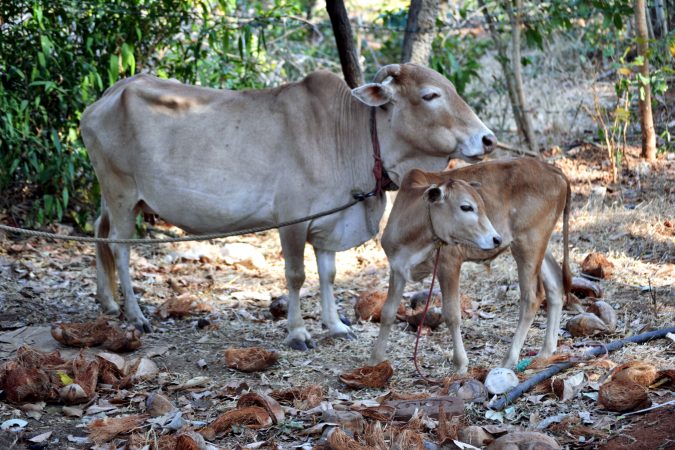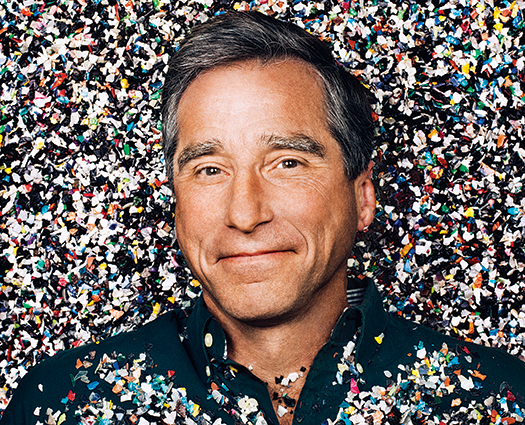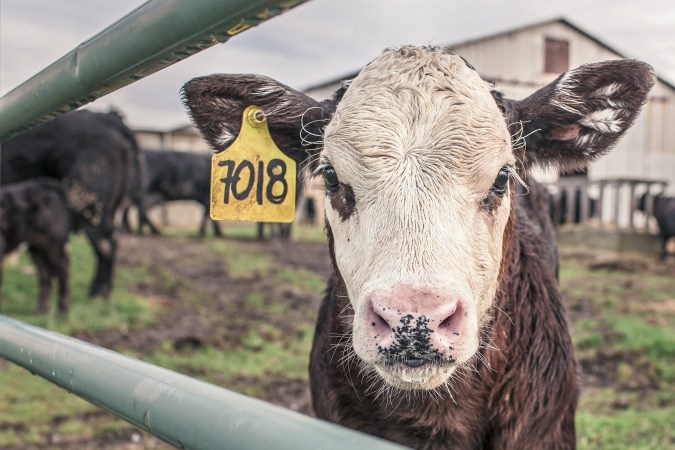

Real life is much more complicated than a simple good versus bad. And in a world in climate turmoil where nobody is ever sure what’s right and wrong for the environment, the cast of heroes and villains is hardly black and white.
Still, the narrative is irresistible. And for some people, it can be pretty easy to fall into, even with simple decisions like what kind of burger to order. For Ricardo San Martin, the co-founder of the alternative meats lab at UC Berkeley, this is unfortunately the case for certain plant-based businesses that have cropped up in recent years to dethrone the fraught meat and dairy industries.
“They’re very eloquent,” San Martin says of plant-based meat company leaders. “They have two words they repeat that sound some alarms: ‘We’re going to save the world, and we have a mission.’ ”
[Related: How to eat sustainably without sacrificing your favorite foods]
Since the recent boom of companies like Impossible and Beyond Meat in stores, restaurants, and fast food chains like Panda Express and Burger King, scientists and sustainable business experts have poked a few holes in the trend. “We don’t feel we have sufficient information to say Beyond Meat is fundamentally different from [major meat processing giant] JBS,” Roxana Dobre, a manager of consumer goods research at ESG firm Sustainalytics, told the New York Times earlier this month.
On the flip side, plant-based meat industry leaders still tout the environmental and health benefits of their products over animal-derived ones. So how is a consumer to choose? Here’s a breakdown of the sustainability impacts of fake meat in a typical American diet.
Beyond and Impossible vs. animal meat vs. veggies
At the end of the day, if you want to eat what’s best for the environment (and your health)—going for less or minimally processed fruits, veggies, grains, legumes and the like is probably best. If you’re concerned about protein intake, there’s a decent chance you’ll get plenty from plants without worrying about it, even if you’re an athlete or avid gym-goer. Plant-based, meat-mimicking burgers are ultra processed, which is largely what has put critics on edge. For instance, an Impossible burger patty consists of 21 ingredients, including products like soy, which is known to be resource-intensive and produce significant greenhouse gas emissions.
But another crucial point to remember is that these products aren’t meant to replace whole vegetables—they’re supposed to provide an alternative to meat itself. “What it replaces is a burger made from a cow, not a kale salad. So, if you’re saying this is not like the ultimate ‘superfood,’ you’re right,” Impossible Foods CEO Pat Brown told CNBC. “It’s intended to be a product that is healthier for the consumer than a burger made from a cow [and] better for the planet than a burger made from a cow. And for many consumers, more delicious.”
When it comes down to greenhouse gas emissions like CO2 and methane, plant-based meats produce significantly fewer than their meaty counterparts, as recent research out of Oxford and Johns Hopkins shows. Land use for soy and peas, the two main ingredients for Impossible and Beyond Burgers, respectively, is a mere slice of that for beef, pork, and chicken, according to a Vox report written by two researchers in environmental science and animal policy. The authors also argue that when it comes to other agricultural issues, like ethical treatment of animals or antibiotic-resistant diseases in livestock, there’s pretty much no question as to which kind of burger is more likely to perpetrate these problems.
[Related: Here’s a planet-friendly diet that’s not vegan]
Still, if it comes down to a Beyond Burger and a bean burger, the first massively outweighs the second in terms of environmental impact, according to University of Oxford environmental scientist Marco Springmann. “Beyond and Impossible go somewhere towards reducing your carbon footprint, but saying it’s the most climate-friendly thing to do—that’s a false promise,” he told CNBC back in 2019. Rather than considering these products as an add-on, consumers should use them as a bridge to work toward a more veggie-centric diet.
Holding the plant-based meat industry more accountable
The meat industry presents a huge problem for sustainability and public health, no doubt. But this isn’t a Marvel movie: No one product, or even type of product, can’t swoop in and rescue humanity. And while plant-based meat may fit in the climate solution, it’s far from the only, let alone most impactful one. Being a somewhat-more-sustainable option than real meat doesn’t make it an absolute godsend, San Martin says. Besides, he adds, there’s still a lot to be learned about the health and environmental impacts of these alternatives as they fill up grocery shelves and restaurant menus. The industry is worth 20.7 billion dollars as of the end of 2020—and is set to reach 23.2 billion by 2024.
“The people behind the mission statement, the narrative—it’s a business,” San Martin says. “That should tell us we should look into this as if it’s any other business. It has to be regulated.” The nutritional value and detailed environmental footprint need to be out in the open, he adds, even when the companies say they exist to “save the Earth.”















